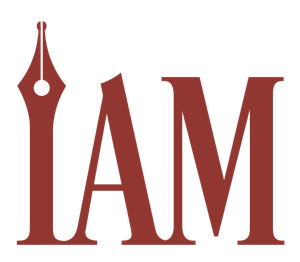As an indie author, you’re constantly balancing your creative process with the demands of running your own marketing. Among the tools available to boost your book’s visibility, editorial reviews hold special significance, as they set the tone for your entire marketing campaign. Reviews are one of the most trusted and effective forms of marketing across many industries, and in the literary world, editorial reviews are renowned as one of the most powerful methods to build awareness and credibility.
Editorial reviews are professional evaluations of a book, written by reviewers, editors, or critics with literary expertise. They are often published in newspapers, magazines, literary journals, or reputable websites like Publishers Weekly (via BookLife for self-published authors), Kirkus Reviews, and Library Journal. Unlike customer reviews on Amazon or Goodreads—written by casual readers—editorial reviews come from industry authorities. While influencer or social media reviews and author endorsements can help promote a book, they often lack the critical analysis of editorial reviews.
The key distinction is that editorial reviews signal to the industry and readers that your work has been professionally evaluated. As a result, they play a vital role in a book’s promotion and elevate its credibility.
Obtaining editorial reviews should be done strategically and in a timely manner to maximize their impact. Understanding what editorial reviews are, how they differ from other types of reviews, and how to navigate the process helps indie authors leverage them effectively.
Who Can Secure Editorial Reviews?
Traditional publishers have established systems to secure editorial reviews through long-standing relationships with major outlets. Small and indie presses sometimes assist their authors, though they may have fewer resources. Hybrid presses vary—some help with submissions while others leave it up to the author. Marketing and PR firms can also offer support for authors who need it. Most importantly, self-published authors can secure their own editorial reviews, but knowing the ins and outs can help ensure success.
Benefits for Indie Authors
For indie authors, editorial reviews can make a significant difference in how your book is perceived. Here’s why they matter:
- Professional Endorsement: A review from a respected source lends an air of credibility, helping your book stand out. Bookstore buyers, librarians, and other industry professionals often use reviews, such as those from Booklist and Foreword Reviews, when evaluating titles to stock on their shelves.
- Marketing Power: Quotes or “blurbs” from editorial reviews can be featured on back covers; placed in Amazon’s editorial review section; used in press releases; shared on social media; and used in backgrounders, one sheets, and other promotional material. Many editorial review platforms have significant name recognition by readers and others in the industry, so seeing those publications in association with your work may give it a boost.
- Constructive Feedback: Editorial reviews can offer insights before publication, almost like a professional beta read, allowing you to address any issues in the manuscript.
When to Pursue Editorial Reviews
Ideally, you should begin pursuing reviews well before your book's release. Six months is recommended, with three months being the minimum. Here’s why:
- Submission Queues: Most platforms require filling out an online submission form. Your book will then enter a queue for consideration. Sites like Publishers Weekly, Kirkus Reviews and Books That Make You follow this structured system.
- Review Process: After submission, the reviewer reads your book and writes a detailed critique. This can take weeks or even months, depending on the platform and volume of submissions.
- Publication: Once the review is completed, platforms notify you and may give you the option to publish the review. This flexibility is useful if you want to revise your manuscript before release.
- Creating Pre-Launch Buzz: Established authors benefit from the anticipation built before a book’s release. First-time authors can also create that early buzz if their debut is outstanding. Remember, many of these platforms and their magazines or publications are read by bookstore buyers, librarians, and readers, too.
Keep in mind, professional review platforms accept advance reader copies (ARCs), which aren’t necessarily the final manuscript. Professional reviewers know this and focus on the overall quality, even if minor edits are pending.
How to Obtain Editorial Reviews
To obtain editorial reviews, follow this general process:
- Make a List: Research which review sites suit your book’s genre and type.
- Submit via Online Platforms: Most editorial review outlets have online submission systems. Sites like Publishers Weekly, BookLife and Kirkus Reviews require you to fill out forms, while others like Midwest Book Review require physical copies to be mailed in along with printed marketing materials. Indie authors can send an Amazon proof or physical ARC, or wait and send the physical book once printed.
- Note Submission Deadlines: Many platforms, such as Publishers Weekly and BookLife, require titles to be submitted months before the release date. Platforms like Kirkus Reviews can take several months for a review to be completed. Expedited reviews often cost more, so plan and budget accordingly.
- Use Feedback Constructively: Platforms that allow you to decide whether to publish a review give you the advantage of using feedback to improve your manuscript before re-submitting. Consider whether you plan to edit your book after receiving a review when choosing which platforms to pursue.
When seeking editorial reviews, it’s important to understand the specific guidelines and distinctions each platform offers. For example, Kirkus Reviews has strict rules about how you can use their reviews. Once you pay for a review, you receive an honest critique—whether positive or negative—and you cannot edit or remove any parts you dislike. Despite this, Kirkus Reviews are highly respected within the publishing industry, with bookstore buyers, librarians, and other professionals valuing their integrity.
Some platforms also offer special recognition for outstanding books. Kirkus Reviews awards the Kirkus Star, one of the most prestigious honors in the industry, to books that demonstrate exceptional quality. Similarly, Books That Make You offers “Hearted Reviews,” which are reserved for the top 10 percent of submitted manuscripts, recognizing those of extraordinary merit.
Maximizing Your Editorial Reviews
Once you've secured an editorial review, here’s how to make the most of it:
- Feature Reviews Prominently: Use positive quotes on your book’s cover, in the front matter, and in product descriptions on retail sites. Properly attribute the quote to the reviewer and platform according to their guidelines.
- Use in Marketing Materials: Quote reviews in press releases, newsletters, and one sheets. Editorial reviews can enhance your promotional efforts among those in the publishing industry, as well as with consumers, when used strategically.
- Promote on Social Media: Share excerpts of reviews on social media to engage potential readers and show that professionals have vetted your book. Do this for both earned and paid media strategies.
- Link to the Full Review: Wherever possible, link back to the full review. This allows readers to see the complete critique and reinforces trust in the review’s authenticity.
- Leverage for Awards: Include editorial reviews in award submissions. A strong review with proper attribution can boost your chances of recognition.
More than Just a Feel-Good Accolade
Editorial reviews are more than just accolades; they are one of the first marketing touchpoints that can boost your book’s credibility and reach. Whether it’s a star from Kirkus Reviews or a BookLife Review via Publishers Weekly, these reviews serve as trusted signals in the competitive literary landscape.
Many indie authors do rapid releases and offer fast publication schedules. This sets them apart from the often slow-moving traditional publishing route. And therein lies the rub. If you want to utilize editorial reviews, realize you may sacrifice some of the benefits associated with them to please your eager fanbase. However, by leveraging these opportunities strategically, indie authors can position their books for greater visibility and recognition.
Editorial Review Platforms
Interested in exploring literary reviews for your next release? Here are some platforms that offer editorial reviews:
- Kirkus Reviews: Offers paid review services for publishers and options for indie authors. Kirkus Reviews is one of the most popular editorial review platforms in the industry.
- Publishers Weekly (via BookLife): Indie authors can submit for free via BookLife or opt for a guaranteed paid review through BookLife Reviews.
- Foreword Reviews: A respected platform for indie and small-press books, trusted by librarians and booksellers.
- Midwest Book Review: Established in 1976, the Midwest Book Review is an organization committed to promoting literacy, library usage, and small press publishing. It publishes several monthly book review magazines.
- Books That Make You: Professionally written reviews are shared on its expansive network through its website, in the monthly Webby Award-winning newsletter, and on social media.
- Library Journal: Particularly valuable for nonfiction and literary works, libraries often use Library Journal to guide acquisitions.
- Booklist: Published by the American Library Association, Booklist provides professional reviews used by librarians and educators for collection development and purchasing decisions.











